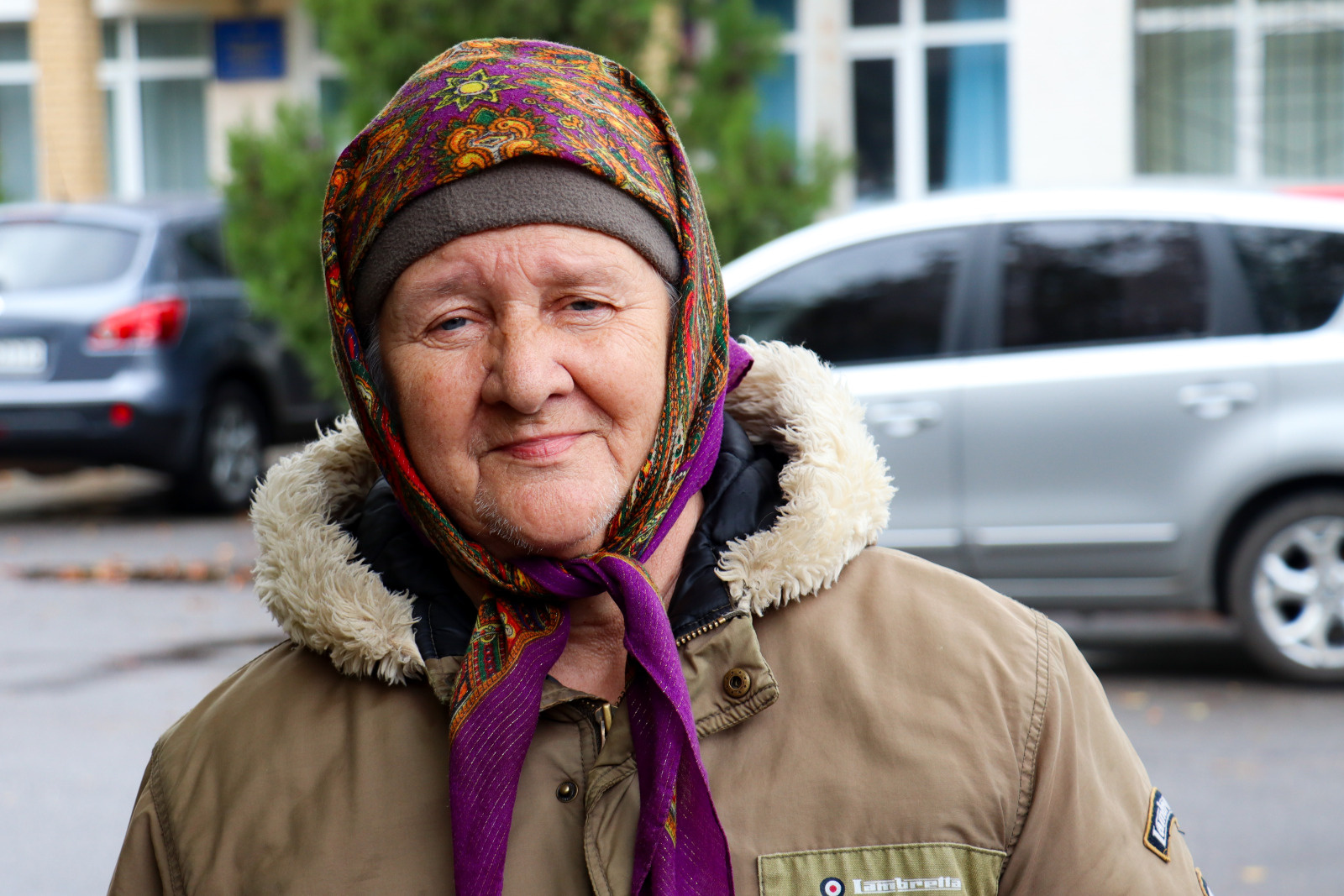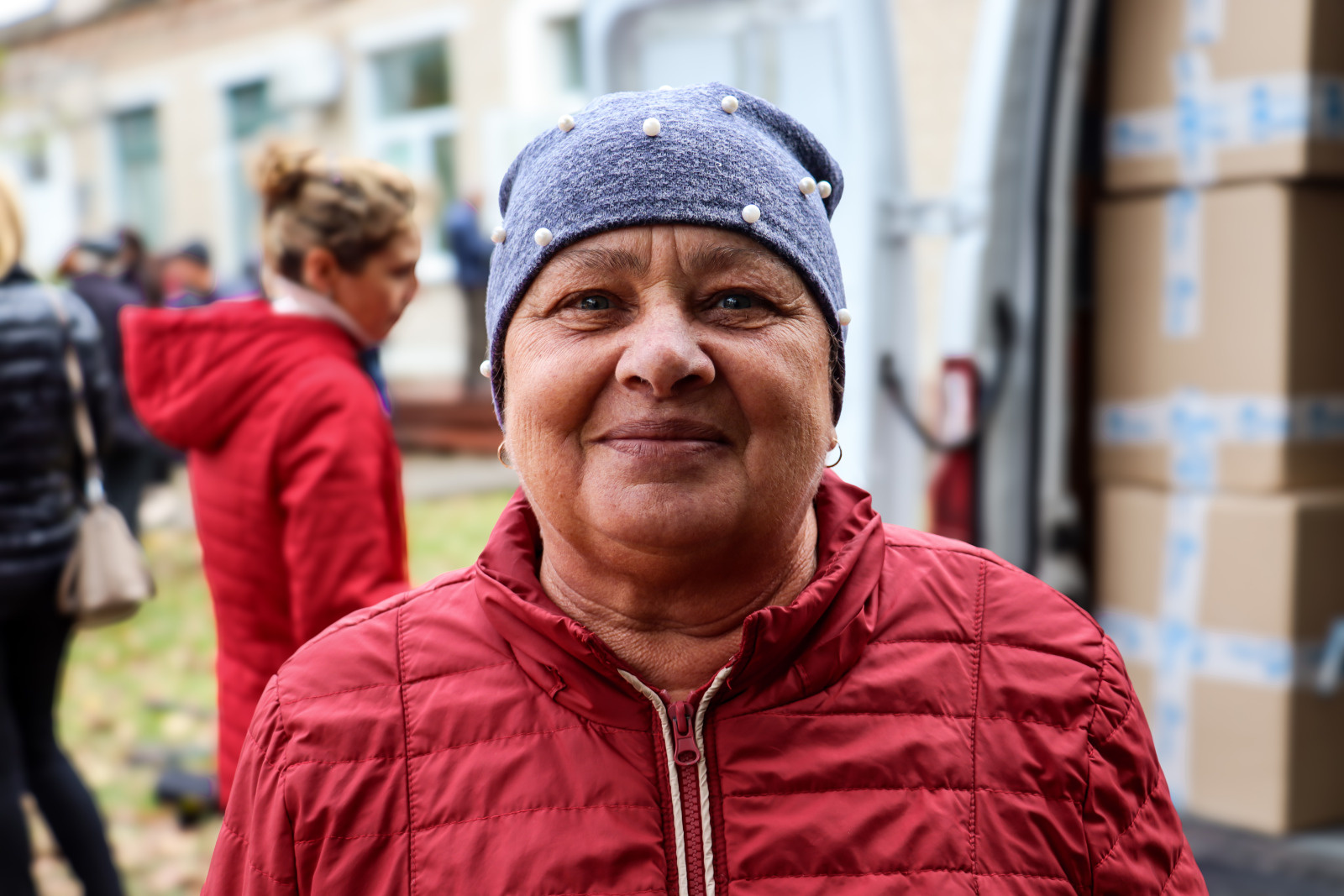It's 11 o'clock in the morning and the queue is lengthening outside the municipal offices in this small rural town in the Dnipro region of eastern Ukraine. These residents, who have been identified because of their vulnerability, have been informed of the distribution organised by Humanity & Inclusion (HI).
“This kit will last me four months”
"The commune of Tsarichanka is home to many displaced families who have not received aid for a long time. We also help older people, large families and people with disabilities", explains Vadim Loktionov, HI's "Basic Needs" project manager in the East of Ukraine.
Inside the boxes are soaps, shampoos, towels, nappies and medical gloves. Pavlo, 39, is a wheelchair user. He has come to collect his hygiene kit. He asks Vadim to help him carry it to a small grocery shop in the same street. "Thank you very much, you can leave it here, I'll call my wife", he tells Vadim. This little "extra", this "helping hand", is accepted with a warm smile by this forty-year-old living with cerebral palsy:
"I really need these products every day, but my pension is too small. This kit from HI will last me at least 4 months, and with a bit of luck I won't need to buy anything during that time".
 The aim of these distributions is to help people save money on hygiene products so they can use it to meet other needs. The war has further complicated the daily lives of already vulnerable people. Many of them are caregivers, like Liudmila:
The aim of these distributions is to help people save money on hygiene products so they can use it to meet other needs. The war has further complicated the daily lives of already vulnerable people. Many of them are caregivers, like Liudmila:
"Thank you so much to the HI teams for their help, because without HI, we wouldn't be able to buy all these basic necessities. My daughter is very ill. We wanted to take her to Kiev for treatment, but then the war started. This aid is essential for us because it means we can put aside what little money we have to buy medicines and food".
Essential support for the most vulnerable

Nelya approaches the truck discreetly, hesitating to pick up her box. Asking for help was not easy for this 60-year-old cancer patient. But for her, it's a question of survival:
"I'm on my sixth course of chemotherapy and the treatments are very expensive. I really need help," says Nelya, with tears in her eyes.
On this day, in the small town of Tsarichanka, HI’s teams distributed around a hundred kits.
"When people come to us and we talk with them, the first thing they ask us is, "when will we be at peace?” It's a very difficult question, and we struggle to answer them – we don't know what to say. We just try to help them cope every day, as best we can," concludes Vadim Loktionov.
With the support of France (CDCS), the European Union (ECHO), the United States Bureau for Humanitarian Assistance (BHA) and Canada (GAC), HI has been able to distribute more than 12,000 hygiene kits and provide assistance to 15,000 beneficiaries since 2022. HI has also supported more than 54 collective reception centres, and a further €1,735,000 has been allocated to provide financial support to just over 8,440 people affected by the conflict.


 The aim of these distributions is to help people save money on hygiene products so they can use it to meet other needs. The war has further complicated the daily lives of already vulnerable people. Many of them are caregivers, like Liudmila:
The aim of these distributions is to help people save money on hygiene products so they can use it to meet other needs. The war has further complicated the daily lives of already vulnerable people. Many of them are caregivers, like Liudmila:


